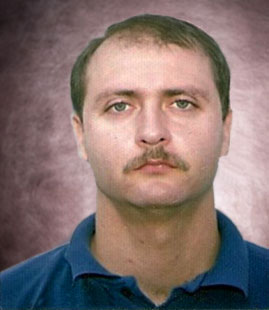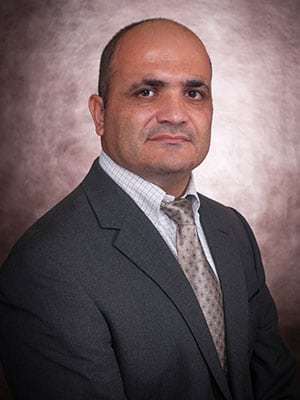Computer Engineering (BSc, 4 Years)
| Duration | 4 years |
| Qualification Awarded | Bachelor of Science in Computer Engineering |
| Level of Qualification | Bachelor Degree (1st Cycle) |
| Language of Instruction | English |
| Mode of Study | Full-time or Part-time |
| Minimum ECTS Credits | 240 |
Request Information
Profile of the Programme
The Bachelor of Science in Computer Engineering program is intended to qualify students to begin a professional career in the field as Engineering professionals or to pursue further advanced post-graduate studies at the level of Master’s or Doctorate degrees. The major engineering courses of the Bachelor’s program contain, apart from theory and fundamental principles, elements of analysis and design, as well as significant laboratory work.
The program prepares the students to have a fundamental understanding of a broad spectrum of topics in Computer Engineering as well as advanced knowledge and in-depth understanding of at least one of the specialization areas of the field. The program builds upon the basic knowledge of mathematics, physics and computer technology, offering specialized knowledge on the areas of electronic circuits, telecommunications, microprocessors, VLSI, computer networks, embedded systems, databases, software engineering and many more. Students can select elective courses according to their preferences from two thematic areas:
- Computer Systems and Networks
- Software Engineering and Applications
During the course of the program, students acquire extensive hands-on laboratory experience in designing hardware and software solutions for challenging real-world problems as well as an interdisciplinary fundamental knowledge for a more fulfilling and rewarding career. Upon completion of the studies, graduates are equipped with independent thinking and problem-solving skills to tackle real-world Computer Engineering problems. They develop their ability to communicate technical ideas effectively through both oral presentations and written reports. Moreover, the program aims in developing well-rounded individuals with knowledge beyond science and engineering including business, and liberal arts. Computer Engineering graduates have advanced software programming and hardware design skills necessary to analyse and design of computer systems and are well prepared for either an entry-level job in the field or further post-graduate studies.
The program is fully accredited by the Ministry of Education. It has also been approved by the Cyprus Scientific and Technical Chamber (ETEK) and our graduates are in a position to register as licensed Engineers with ETEK. The program conforms to the undisputable academic guidelines set by international accreditation bodies such as the Accreditation Board for Engineering and Technology (ABET) in the United States. It includes a considerable number of major and elective courses of theoretical and applied nature which add to program diversity and contribute to a foundation of a broad range of skills for career positions in academia and industry.
Also, like all programs of study the University of Nicosia, it is certified by the Cyprus Agency of Quality Assurance and Accreditation in Higher Education (CYQAA).
The University of Nicosia is recognized by the Hellenic National Academic Recognition and Information Center (D.O.A.T.A.P.) as equivalent to Greek H.E.I., while the degrees of its graduates have been recognized by D.O.A.T.A.P.
Occupational Profiles of Graduates with Examples
Graduates of Computer Engineering will be able to use the acquired technical knowledge and analytical skills to effectively tackle engineering problems and provide efficient solutions. Computer Engineers may work in both the government and private sectors. Potential employment opportunities include occupation in:
- automation companies to program computers and microcontrollers for specific applications;
- IT companies to analyze user needs and design application-specific computer systems;
- software development companies as programmers/software engineer;
- computer hardware companies to design computer architectures and networks;
- big firms as IT and/or network engineer;
- telecommunication companies to design and monitor large-scale telecommunication systems;
- electronics industry to design circuits for a wide range of applications such as mobile phones, electronic gadgets, televisions, cameras, entertainment devices, etc.;
- companies that design and implement algorithms for the optimization in efficiency and performance of engineering applications;
- large, multi-national companies as consultants in the fields of telecommunications, semiconductors, electronics, and networks;
- army, navy, and defense companies;
- high schools as teachers of technology and computer science;
Access to Further Studies
After completion of the BSc program in Computer Engineering, students may choose to broaden and deepen their academic qualifications and skills by pursuing post-graduate (Master and PhD) studies in the same or related field in Cyprus or overseas.
Academic Admission
The minimum admission requirement to an undergraduate programme of study is a recognized High School Leaving Certificate (HSLC) or equivalent internationally recognized qualification(s). Students with a lower HSLC grade than 7.5/10 or 15/20 or equivalent depending on the grading system of the country issuing the HSLC are provided with extra academic guidance and monitoring during the first year of their studies.
English Language Proficiency
The list below provides the minimum English Language Requirements (ELR) for enrollment to the programme of study. Students who do not possess any of the qualifications or stipulated grades listed below and hold IELTS with 4.5 and above, are required to take UNIC’s NEPTON English Placement Test (with no charge) and will receive English Language support classes.
- TOEFL – 525 and above
- Computer-based TOEFL – 193 and above
- Internet-based TOEFL – 80 and above
- IELTS – 6 and above
- Cambridge Exams [First Certificate] – B and above
- Cambridge Exams [Proficiency Certificate] – C and above
- GCSE English Language “O” Level – C and above
- Michigan Examination of Proficiency in English (CaMLA) – Pass
- Pearson PTE General – Level 3 and above
- KPG (The Greek Foreign Language Examinations for the State Certificate of Language Proficiency) – Level B2 and above
- Anglia – Level B2 and above
- IEB Advances Programme English – Pass
- Examination for the Certificate of Proficiency in English (ECPE) Michigan Language Assessment by: Cambridge Assessment English & University of Michigan – 650 average score for ALL skills and above
Course assessment usually comprises of a comprehensive final exam and continuous assessment. Continuous assessment can include, amongst others, class participation, homework assignments, laboratory reports, tests, mid-term exam, and semester project.
Letter grades are calculated based on the weight of the final exam and the continuous assessment and the actual numerical marks obtained in these two assessment components. Based on the course grades the student’s semester grade point average (GPA) and cumulative point average (CPA) are calculated.
The student must complete 240 ECTS and all program requirements.
A minimum cumulative grade point average (CPA) of 2.0 is required. Thus, although a ‘D-’ is a PASS grade, in order to achieve a CPA of 2.0 an average grade of ‘C’ is required.
Upon successful completion of this program, the students should be able to:
- Show solid foundation in fundamental areas of mathematics such as differential and integral calculus, linear algebra and discrete mathematics, science including physics and engineering; knowledge of probability and statistics applicable to computer engineering. Ability to apply this knowledge to solve engineering problems;
- Prove breadth of knowledge in basic areas of Computer Engineering including electric circuits, digital and analogue electronics, numerical methods, signals and systems, signal processing, microprocessors, computer organization and architecture, data communication and computer networks, programming, systems analysis and design, data structures and operating systems;
- Demonstrate in-depth knowledge and technical expertise in at least one of the specialized fields of computer systems and networks and software engineering and applications;
- Have broad education necessary to understand the impact of engineering solutions in a global, economic, environmental, and societal context;
- Identify, formulate and solve engineering problems using techniques, skills, creative thinking and modern engineering tools necessary for engineering practice;
- Show advanced knowledge of basic computer and electronic components and their use in analogue and digital circuits and ability to design a system, component, or process to meet desired needs;
- Develop and use models for the analysis and design of components and systems and ability to design, conduct and troubleshoot laboratory work involving engineering technology as well as analyze and interpret data;
- Apply acquired knowledge and analytical tools to solve engineering problems;
- Function on a multi-disciplinary team and to perform in leadership roles;
- Expand their knowledge of contemporary issues and understanding of the importance of considering economic, social and ethical factors in engineering design and practice;
- Communicate ideas effectively;
- Recognize the need for and the ability to engage in life-long learning.
Section: A Major Requirements
ECTS: Min. 140 Max. 140
| Course ID | Course Title | ECTS Credits |
|---|---|---|
| COMP-111 | Programming Principles I | 6 |
| COMP-113 | Programming Principles II | 6 |
| COMP-201 | Systems Analysis and Design | 6 |
| COMP-211 | Data Structures | 6 |
| COMP-354 | Operating Systems | 6 |
| ECE-100 | Electric Circuits I | 6 |
| ECE-101 | Electric Circuits I Lab | 2 |
| ECE-102 | Electric Circuits II | 6 |
| ECE-103 | Electric Circuits II Lab | 2 |
| ECE-110 | Digital Systems | 6 |
| ECE-111 | Digital Systems Lab | 2 |
| ECE-113 | Software Development Lab I | 6 |
| ECE-210 | Electronics I | 6 |
| ECE-211 | Electronics I Lab | 2 |
| ECE-212 | Electronics II | 6 |
| ECE-213 | Electronics II Lab | 2 |
| ECE-220 | Microprocessors | 6 |
| ECE-221 | Microprocessors Lab | 2 |
| ECE-305 | Solid-State Electronic Devices | 6 |
| ECE-310 | Digital Integrated Circuits | 6 |
| ECE-322 | Computer Organization | 6 |
| ECE-324 | Data Communication and Computer Networks | 6 |
| ECE-331 | Signals and Systems I | 6 |
| ECE-332 | Probability and Random Signals | 6 |
| ECE-421 | Computer Architecture | 6 |
| ECE-493 | Senior Year Project | 8 |
| ENGR-290 | Numerical Methods using MATLAB | 6 |
Section: B Thematic Area: Computer Systems and Networks
ECTS: Min. 30 Max. 36
Notes: Students should take at least three (3) courses from one of the two thematic areas and at least five (5) from all the thematic areas together. Subject to approval, a student may select up to two Electrical Engineering program electives.
| Course ID | Course Title | ECTS Credits |
|---|---|---|
| COMP-417 | Parallel and Distributed Computing | 6 |
| COMP-431 | Computer Security | 6 |
| COMP-432 | Network Security | 6 |
| COMP-470 | Internet Technologies | 6 |
| COMP-474 | Cloud Computing | 6 |
| COMP-475 | Internet of Things and Wearable Technologies | 6 |
| ECE-320 | Microprocessor Interfacing | 6 |
| ECE-350 | Principles of Communications | 6 |
| ECE-354 | Data Communication Technologies | 6 |
| ECE-420 | Introduction to VLSI Design | 6 |
| ECE-422 | Advanced Computer Architecture | 6 |
| ECE-425 | Computer Aided Design for VLSI | 6 |
| ECE-428 | Embedded Systems | 6 |
| ECE-431 | Signals and Systems II | 6 |
| ECE-433 | Digital Signal Processing | 6 |
| ECE-434 | Neural Networks and Fuzzy Systems | 6 |
| ECE-460 | Introduction to Robotics | 6 |
| ECE-490C | Special Topics in Electrical and Computer Engineering | 6 |
| ECE-491C | Internship | 6 |
Section: C Thematic Area: Software Engineering and Applications
ECTS: Min. 30 Max. 36
Notes: Students should take at least three (3) courses from one of the two thematic areas and at least five (5) from all the thematic areas together. Subject to approval, a student may select up to two Electrical Engineering program electives.
| Course ID | Course Title | ECTS Credits |
|---|---|---|
| COMP-212 | Object-Oriented Programming | 6 |
| COMP-213 | Visual Programming | 6 |
| COMP-244 | Machine Learning and Data Mining I | 6 |
| COMP-263 | Human Computer Interaction | 6 |
| COMP-302 | Database Management Systems | 6 |
| COMP-321 | Theory of Computation | 6 |
| COMP-340 | Big Data | 6 |
| COMP-370 | Algorithms | 6 |
| COMP-387 | Blockchain Programming | 6 |
| COMP-399 | Special Topics in Computer Science | 6 |
| COMP-401 | Software Engineering | 6 |
| COMP-405 | Artificial Intelligence | 6 |
| COMP-412 | Internet Programming | 6 |
| COMP-413 | Systems Programming | 6 |
| COMP-433 | Ethical Hacking | 6 |
| ECE-491S | Internship | 6 |
Section: D Mathematics Requirements
ECTS: Min. 24 Max. 24
| Course ID | Course Title | ECTS Credits |
|---|---|---|
| MATH-101 | Discrete Mathematics | 6 |
| MATH-195 | Calculus I | 6 |
| MATH-196 | Calculus II | 6 |
| MATH-280 | Linear Algebra I | 6 |
Section: E Science Electives
ECTS: Min. 16 Max. 24
| Course ID | Course Title | ECTS Credits |
|---|---|---|
| CHEM-106 | General Chemistry | 8 |
| PHYS-150 | General Physics I | 8 |
| PHYS-160 | General Physics II | 8 |
| PHYS-270 | General Physics III | 8 |
Section: F Business Electives
ECTS: Min. 6 Max. 12
| Course ID | Course Title | ECTS Credits |
|---|---|---|
| ACCT-110 | Accounting I | 6 |
| BADM-234 | Organizational Behavior | 6 |
| ECON-261 | Principles of Microeconomics | 6 |
| ENGR-300 | Engineering Economy | 6 |
| ENTR-150 | Introduction to Entrepreneurship | 6 |
| MGT-281 | Introduction to Management | 6 |
| MGT-372 | Management of Innovation and Technology | 6 |
| MIS-465 | Business and Management of Games | 6 |
| MKTG-291 | Marketing | 6 |
Section: G Language Requirements
ECTS: Min. 12 Max. 12
| Course ID | Course Title | ECTS Credits |
|---|---|---|
| BADM-332 | Technical Writing and Research | 6 |
| ENGL-101 | English Composition | 6 |
Section: H Liberal Arts Electives
ECTS: Min. 6 Max. 6
Semester 1
| Course ID | Course Title | ECTS Credits |
|---|---|---|
| COMP-111 | Programming Principles I | 6 |
| ECE-113 | Software Development Lab I | 6 |
| ECE-110 | Digital Systems | 6 |
| ENGL-101 | English Composition | 6 |
| MATH-195 | Calculus I | 6 |
Semester 2
| Course ID | Course Title | ECTS Credits |
|---|---|---|
| ECE-100 | Electric Circuits I | 6 |
| ECE-101 | Electric Circuits I Lab | 2 |
| ECE-111 | Digital Systems Lab | 2 |
| PHYS-150 | General Physics I | 8 |
| COMP-113 | Programming Principles II | 6 |
| MATH-196 | Calculus II | 6 |
Semester 3
| Course ID | Course Title | ECTS Credits |
|---|---|---|
| ECE-102 | Electric Circuits II | 6 |
| ECE-103 | Electric Circuits II Lab | 2 |
| ECE-210 | Electronics I | 6 |
| ECE-211 | Electronics I Lab | 2 |
| PHYS-160 | General Physics II | 8 |
| COMP-211 | Data Structures | 6 |
Semester 4
| Course ID | Course Title | ECTS Credits |
|---|---|---|
| ECE-212 | Electronics II | 6 |
| ECE-213 | Electronics II Lab | 2 |
| ECE-220 | Microprocessors | 6 |
| ECE-221 | Microprocessors Lab | 2 |
| MATH-101 | Discrete Mathematics | 6 |
| MATH-280 | Linear Algebra I | 6 |
Semester 5
| Course ID | Course Title | ECTS Credits |
|---|---|---|
| ECE-322 | Computer Organization | 6 |
| ECE-331 | Signals and Systems I | 6 |
| ENGR-290 | Numerical Methods using MATLAB | 6 |
| ECE-310 | Digital Integrated Circuits | 6 |
| COMP-370 | Algorithms | 6 |
Semester 6
| Course ID | Course Title | ECTS Credits |
|---|---|---|
| COMP-201 | Systems Analysis and Design | 6 |
| COMP-354 | Operating Systems | 6 |
| ECE-324 | Data Communication and Computer Networks | 6 |
| ECE-332 | Probability and Random Signals | 6 |
| COMP-417 | Parallel and Distributed Computing | 6 |
Semester 7
| Course ID | Course Title | ECTS Credits |
|---|---|---|
| BADM-332 | Technical Writing and Research | 6 |
| ECE-493 | Senior Year Project | 8 |
| MGT-372 | Management of Innovation and Technology | 6 |
| ECE-420 | Introduction to VLSI Design | 6 |
| COMP-244 | Machine Learning and Data Mining I | 6 |
Semester 8
| Course ID | Course Title | ECTS Credits |
|---|---|---|
| ECE-305 | Solid-State Electronic Devices | 6 |
| ECE-421 | Computer Architecture | 6 |
| COMP-401 | Software Engineering | 6 |
| ECE-425 | Computer Aided Design for VLSI | 6 |
| PSY-110 | General Psychology I | 6 |
The above semester breakdown is an indicative one. A few of the courses are electives and can be substituted by others. Students may contact their academic advisor and consult their academic pathway found on this website under “Schools & Programmes”.






















